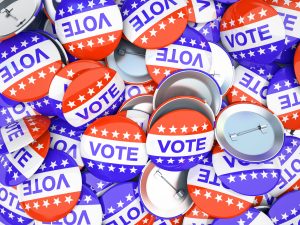As the United States approaches its 2024 presidential election, the dynamic between the two leading candidates, Kamala Harris and Donald Trump, is poised to have significant implications for China-U.S. relations. The unexpected shift in the Democratic campaign, with Harris replacing incumbent President Joe Biden, has introduced uncertainty into the race.
Following the Republican and Democratic National Conventions held in mid-July and late August, respectively, both candidates are engaged in a fierce contest for the presidency. Harris currently leads Trump by four points in nine polls, with some mainly focused around the key battleground states, as of September 1, but her foreign policy credentials, particularly concerning China, remain under scrutiny.
Harris’s sudden rise to the top of the Democratic ticket has left her with limited time to develop a comprehensive foreign policy strategy. Although the Democratic National Convention released a party platform, it was written as though Biden were still the candidate. Harris is widely seen as inexperienced in international affairs, having focused primarily on domestic issues throughout her public career.
In her first interview since launching her campaign, given to CNN on August 29, Harris indicated that she is likely to continue Biden’s foreign policy trajectory. However, her selection of Philip Gordon as her national security adviser suggests a potential diversion in China policy, as Gordon’s pragmatic approach may differ from the more confrontational stance of the Biden administration.
Gordon’s views on foreign policy are deeply influenced by his opposition to the Bush administration’s regime change strategy in Iraq, which he believes tarnished the United States’ global reputation. As a “pragmatic internationalist,” Gordon advocates for a judicious use of U.S. power, arguing that the effectiveness of U.S. foreign policy lies not in its institutions but in the quality of its leadership. His Europeanist perspective suggests that he views European security as central to U.S. global power, yet he acknowledges that China, not Europe, is now the primary focus of U.S. foreign, military, and economic policies.
Gordon’s influence on Harris’ China policy remains to be fully understood, however, and Harris’ deputy national security adviser, Rebecca Lissner, has played a significant role in shaping the Biden administration’s strategy toward China. Lissner’s work on the Biden National Security Strategy reflects a recognition that the post-Cold War era has ended and that the United States is engaged in a strategic competition with China, its only peer competitor. This strategy reaffirms the U.S. commitment to a first-strike nuclear arsenal and a robust military posture, indicating that Harris may continue this hardline approach if elected.
Meanwhile, Trump, should he reclaim the presidency, is likely to double down on his aggressive stance toward China, with a particular focus on economic and technological competition. The Republican National Convention’s endorsement of a Trump-dominated policy platform, coupled with the selection of J.D. Vance as his running mate, underscores the party’s commitment to confronting China. Trump’s potential appointments of figures like Elbridge Colby and Robert Lighthizer, known for their hawkish views on China, suggest that his administration would prioritize U.S. economic supremacy and technological advancement, particularly in areas such as artificial intelligence and space.
Trump’s approach to Taiwan is indicative of his broader China strategy. He views Taiwan primarily as a market for U.S. weapons and a source of semiconductor technology, highlighting the economic lens through which he sees foreign policy. Trump is likely to continue arms sales to Taipei without significantly enhancing U.S. defense commitments. Additionally, his administration may reduce the U.S. strategic presence in the West Pacific and weaken U.S.-led alliances in the Indo-Pacific, focusing instead on unilateral measures to suppress China’s economic and industrial growth through punitive tariffs and sanctions.
Beijing, for its part, is acutely aware of the high stakes in the upcoming U.S. election. Regardless of who wins, China anticipates a tough stance from the next U.S. administration.
A Harris presidency might see Beijing seeking to anchor her administration to the agreements reached with Biden, particularly through continued engagement in forums such as the Peru-hosted APEC and Brazil-hosted G-20 summits in late November. This strategy is designed to build on the Democrats’ recent diplomatic efforts, exemplified by National Security Adviser Jake Sullivan’s visit to Beijing in late August, and their intent to seek Chinese cooperation on major geopolitical conflicts and U.S. domestic socioeconomic challenges, particularly during the final phase of Biden’s administration and the Democrats’ presidential campaign.
However, Beijing is also preparing for the possibility of another Trump presidency. While Beijing has been reportedly struggling to connect with Trump’s camp – even unsuccessfully sending the former Chinese ambassador to the United States during Trump’s term, Cui Tiankai – Beijing is likely to continue its outreach to Trump even while solidifying and capitalizing on its alignment with Russia and the Global South. Beijing may encourage strategic autonomy among U.S. allies, particularly the European Union, by offering economic incentives and accelerating trade settlements. Additionally, China might engage in techno-economic negotiations with the U.S., willing to make economic sacrifices in exchange for strategic gains in the West Pacific.
In conclusion, the outcome of the 2024 U.S. presidential election will have profound implications for the trajectory of China-U.S. relations. Whether under a Harris or Trump administration, Beijing is preparing for a challenging period ahead, marked by strategic competition and economic rivalry. As both sides navigate this complex landscape, the global balance of power will be significantly influenced by the policies and decisions of the next U.S. president.

































